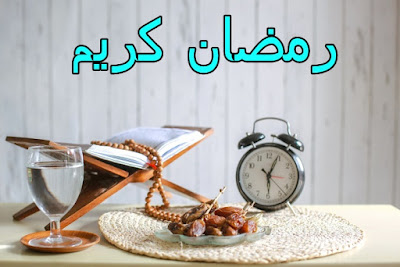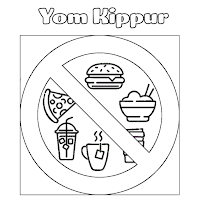The month of Ramadan (Arabic: رمضان) is a month in the Muslim year in which one fasts during the day, at dawn, and celebrates during the night, from sunset. On Ramadan nights the atmosphere is of a holiday and a festival. Great family meals are held, relatives visit and lots of gifts are bought for each other. During Ramadan fasting (forbidden to eat and drink) and also forbidden to smoke and have sex. No marriages are held during the month of Ramadan.
Ramadan is the ninth month of the Muslim year. The month lasts for 29 or 30 days (depending on the lunar new moon at the end of the month) and towards the end of it falls the Laylat al-Qadr (Fateful Night), when according to Muslim tradition, the angel Jibril (Gabriel) was revealed to Muhammad for the first time. : Sūrat al-ʿAlaq. This night occurs on one of the odd days from the 21st of the month until the end, in most places on the 27th night. There is a belief that this night is "better than a thousand months" and that this night there is always a clear cloud and pleasant weather, and temporary peace prevails all over the world. It is also believed that a wish expressed on this night will come true and one can ask God for forgiveness on this night as well.
At the end of the month, Eid al-Fitr, the Muslim holiday that falls on the first three days of the month of Shawwal, the tenth month in the Muslim calendar.
Because the Muslim calendar depends on receiving evidence regarding the sighting of the lunar new moon, it is not possible to determine exactly when the Islamic holidays will apply in advance, and there can be a shift of one or two days between the expected date and the actual date. In different geographical places Ramadan can begin and end with a slight difference of a day or two, so determining the beginning and end of the month of Ramadan depends on an Islamic court that relies on eyewitness evidence of the lunar new moon.
Every adult Muslim (aged 11-13) must fast during Ramadan, women and men alike. Those who are exempt from fasting are patients, the elderly, travelers, pregnant and breasfeeding women and women in period, and these must complete the days of fasting they missed at a later date or donate to charity if they cannot fast at all.
To meet the fast of Ramadan, many Muslims get up very early, before sunrise, to eat the predawn meal, the suhur- the last meal before the start of the fast. There is also a tradition of 'musaharati', a person with a special role who walks the streets and wakes the sleeping ones to the intermittent meal.
Before the sun goes down, the whole family gathers to eat the Iftar, the meal that ends the fast. At this meal it is customary to start eating a date, following the custom of Muhammad quoted in the Qur’an.
Muslims treat the month of Ramadan as a month of introspection, closeness to God, worship, modesty and restraint, atonement for sins, doing acts of kindness and empathy with hunger and difficulty which is the lot of the poor and needy. It is customary to adhere strictly to the laws of Islam that are not specific to Ramadan such as prayer, avoidance of gossip, hypocrisy and other moral sins.
Greetings for Ramadan
Ramadan is considered by Muslims to be a month of holiness, brotherhood and joy and the accepted blessings are the blessing of Ramadan Karim (رمضان كريم - meaning generous Ramadan), Ramadan Mubarak (رمضان مبارك - Blessed Ramadan), and kl eam wa'antuma bakhyar! (كل عام وانتم بخير - meaning Best wishes for a happy year).
 |
| Ramadan kareem - رمضان كريم |
 |
| Ramadan mubarak - رمضان مبارك |


















